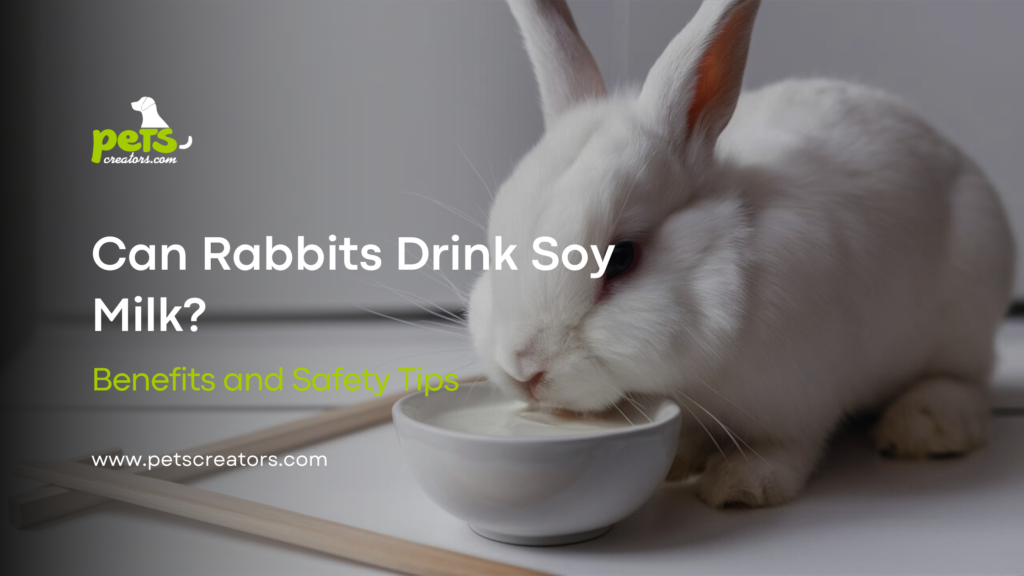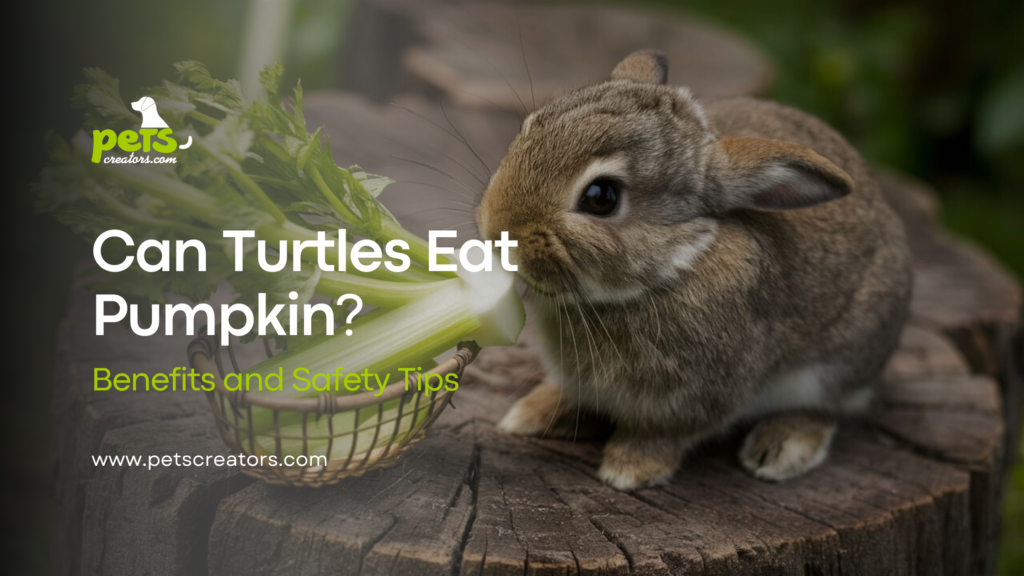For your rabbit to remain healthy and active, you must feed it the right foods. With different food choices possible, you may be curious to know if soy milk is okay for rabbits. This paper seeks to answer the questions regarding the appropriateness of soy milk for rabbits, the dangers associated with its use, and the impact on their overall well-being. Follow the link and find out why soy milk is not good for your pet and what you can offer them instead. Can Rabbits Drink Soy Milk?
Safe Alternative to Rabbit Eat Soy Milk?
When thinking about what to feed your pet rabbit, you might wonder if soy milk is a safe alternative. The short answer is that soy milk is not recommended for rabbits. Their digestive systems are designed to process hay, fresh vegetables, and a small amount of specially formulated pellets. Soy milk, on the other hand, can cause digestive issues and doesn’t provide the right nutrients in the right proportions for rabbits.
Hay is very important in a rabbit’s diet and its function includes grinding the rabbit’s teeth and helping the bowels. The natural vitamins and minerals in the fresh vegetables need to be pointed out here as being essential for the parrot’s health while the pellets would just compensate for the vitamins that are missing in the vegetables. Soy milk, however, lacks fibre as required and certainly contains high protein and fats not suitable for rabbits’ digestion. In addition, rabbits do not have a physiological ability to digest lactose and while soy milk is not lactose it is not a natural diet for rabbits.
If you’re looking for a safe alternative to soy milk, consider offering your rabbit fresh water and a variety of leafy greens. Leafy greens such as romaine lettuce, kale, and parsley are excellent choices. Always introduce new foods slowly to avoid upsetting your rabbit’s digestive system.
Risks of Feeding Eat Soy Milk
Feeding soy milk to rabbits can pose several risks. Firstly, soy milk is high in protein and fat compared to the natural diet of a rabbit, which can lead to obesity and other health issues. Rabbits are built to process low-protein, high-fibre diets; anything outside this can disrupt their digestive system.
Another risk is gastrointestinal stasis, a severe condition where the rabbit’s digestive system slows down or stops completely. This condition can be life-threatening if not treated promptly and can be triggered by inappropriate diets, such as one that includes soy milk. The high protein and fat content in soy milk can also lead to liver disease and kidney issues in rabbits.
Soy milk can also cause bloating and discomfort in rabbits. The sugars and complex carbohydrates in soy milk can ferment in a rabbit’s gut, leading to gas and bloating. This is not only uncomfortable for the rabbit but can also be dangerous.
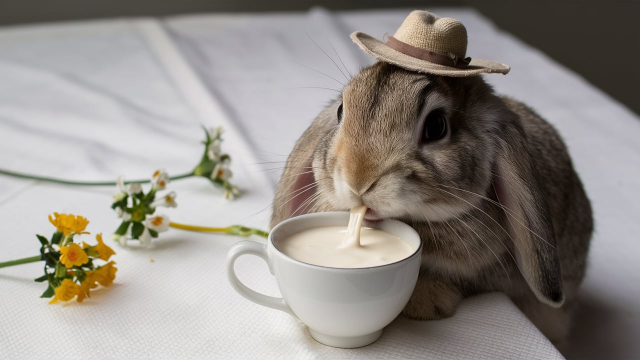
Effects of Eat Soy Milk on Rabbit
There are no reported benefits of consuming soy milk in rabbits, only negative impacts associated with this. First, high fat and protein produce obesity since these nutrients are associated with excess calorie content. If the rabbits are overfed, then they can be subjected to health problems such as obesity, heart disease, and joint problems.
Additionally, soy milk can upset a rabbit’s digestive balance. Rabbits have a delicate digestive system that relies on a constant intake of high-fibre foods to function correctly. Introducing soy milk can disrupt this balance, leading to digestive upset and potential long-term health issues.
Over time, feeding soy milk to rabbits can also affect their nutrient absorption. The imbalance in their diet can prevent them from getting the necessary vitamins and minerals, leading to deficiencies and poor health.
Are Eat Soy Milk Good for Rabbit?
Simply put, soy milk is not good for rabbits. Their diet should mainly consist of hay, fresh vegetables, and a small number of pellets. Hay provides the necessary fibre to keep their digestive system running smoothly, while vegetables offer essential vitamins and minerals. Pellets can provide additional nutrients to ensure a balanced diet.
Soy milk, however, does not fit into this dietary scheme. It lacks the necessary fibre, contains too much fat and protein, and can upset a rabbit’s delicate digestive system. Even though soy milk is lactose-free, it’s still not suitable for rabbits as it isn’t a natural part of their diet and can lead to health issues.
Nutritional Value of Eat Soy Milk for Rabbit?
When considering the nutritional value of soy milk for rabbits, it’s important to compare it to what they naturally need. Soy milk is rich in protein and fat, which is not suitable for a rabbit’s diet. Rabbits need a high-fiber, low-protein diet, primarily consisting of hay, fresh vegetables, and a small amount of pellets.
Soy milk does not provide the necessary fibre that hay does, nor does it contain the variety of vitamins and minerals that fresh vegetables offer. Additionally, the protein and fat content in soy milk can lead to obesity and other health issues in rabbits.
How is Eat Soy Milk made?
Soy milk is made by soaking soybeans in water, grinding them, boiling the mixture, and then filtering out the solids. This process creates a milk-like liquid that is often used as a dairy alternative for humans. While soy milk is nutritious for humans, it is not suitable for rabbits due to its high protein and fat content.

What Types of Eat Soy Milk Are Safe for Rabbits?
No type of soy milk is safe for rabbits. Their digestive systems are not equipped to handle soy milk, and it does not provide the necessary nutrients they need. Instead, focus on providing your rabbit with a diet that includes plenty of hay, fresh vegetables, and a small number of pellets.
Do Wild rabbits eat Soy Milk?
Wild rabbits do not consume soy milk. Their diet consists of grasses, herbs, and other vegetation they find in their natural habitat. These foods are high in fibre and low in protein and fat, which is exactly what their digestive systems are designed to handle. Soy milk is not a natural part of their diet and should not be introduced.
Why is Eating Soy Milk Harmful to Rabbits?
Consuming soy milk is something that rabbits should avoid for the following reasons: Firstly, high protein and fat lead to obesity and probable health implications of obesity such as heart disease. Secondly, the major nutrient which is fiber that is vital in enhancing the rabbit’s digestion is not present in soy milk. Last but not least, it is unsafe to incorporate soy milk as it interferes with the balance and harmony of the Rabbit’s digestive system, thus causing long-term health complications.
Store-bought Eat Soy Milk and Rabbit
Store-bought soy milk often contains added sugars, flavours, and preservatives, which can be even more harmful to rabbits. These additives can upset their digestive systems and lead to further health problems. Always avoid giving your rabbit any form of soy milk, whether homemade or store-bought.
How Often Can My Rabbit Eat Soy Milk?
Rabbits should never consume soy milk. It does not provide the necessary nutrients and can cause a range of health issues. Stick to a diet of hay, fresh vegetables, and a small number of pellets to ensure your rabbit remains healthy and happy.
How Many Eat Soy Milk are there?
There are various types of soy milk available on the market, including plain, flavoured, and fortified versions. Regardless of the type, none of them are suitable for rabbits. Always avoid giving your rabbit any form of soy milk.
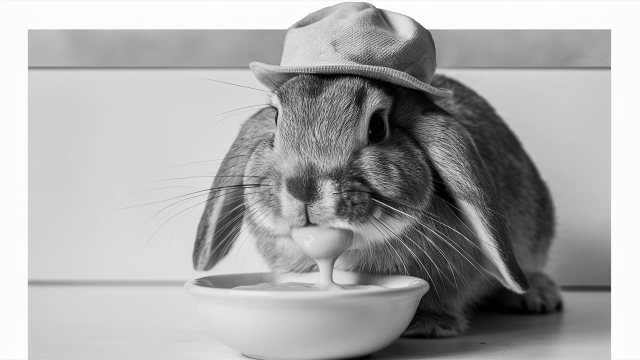
Observing Your Rabbit After Eating Soy Milk?
If your rabbit accidentally consumes soy milk, monitor them closely for any signs of digestive upset, such as decreased appetite, lethargy, or changes in stool. If you notice any of these symptoms, contact your veterinarian immediately for advice.
What About Eat Soy Milk Seeds and Leaves?
Soybean plants, including their seeds and leaves, are not suitable for rabbits. They contain compounds that can be harmful to rabbits and should be avoided. Stick to providing your rabbit with safe, rabbit-friendly vegetables and plants.
Tips for Serving Eat Soy Milk to Bunnies?
As soy milk is not suitable for rabbits, there are no tips for serving it. Instead, focus on providing a balanced diet that includes plenty of hay, fresh vegetables, and a small number of pellets. Ensure that fresh water is always available.
How does Soy Milk digestion in rabbits?
Rabbits have a specialized digestive system designed to process high-fiber diets. Soy milk does not provide the necessary fibre and can disrupt their digestive process. This disruption can lead to serious health issues, including gastrointestinal stasis.
What are the nutritional benefits of eating Soy Milk for rabbits?
There are no nutritional benefits of soy milk for rabbits. Their dietary needs are best met with hay, fresh vegetables, and a small number of pellets. Soy milk lacks the necessary nutrients and can cause health issues.
Do Rabbits Enjoy Soy Milk Food?
Rabbits might be curious about new foods, but soy milk is not suitable for them. Even if they show interest, it is important to prioritize their health and stick to a diet that meets their nutritional needs.
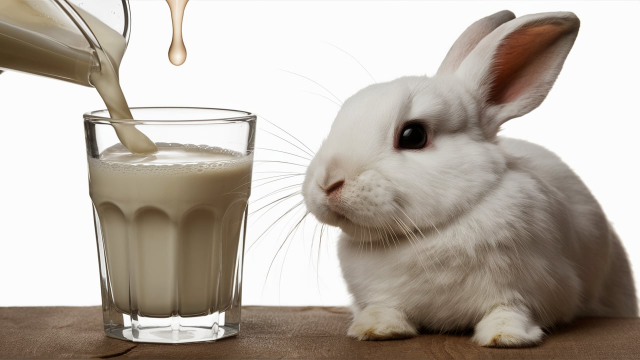
What parts of Soy Milk can rabbits eat?
No part of soy milk is suitable for rabbits. Their digestive systems are not equipped to handle soy milk, and it does not provide the necessary nutrients. Focus on providing rabbit-safe foods that promote their health and well-being.
Can rabbits Eat Soy Milk seeds?
Soybean seeds are not suitable for rabbits. They contain compounds that can be harmful and should be avoided. Stick to providing your rabbit with safe, rabbit-friendly foods.
Can Eat Soy Milk be toxic to rabbits?
While soy milk is not inherently toxic, it is not suitable for rabbits and can cause a range of health issues. The high protein and fat content can lead to obesity, and the lack of fibre can disrupt their digestive systems.
Can Eat Soy Milk cause digestive problems in rabbits?
Yes, soy milk can cause digestive problems in rabbits. Their digestive systems are designed to process high-fibre diets, and soy milk lacks the necessary fibre. This can lead to gastrointestinal upset and other health issues.
How do you introduce your bunny to Soy Milk?
You should not introduce soy milk to your bunny. It is not suitable for their diet and can cause health issues. Instead, introduce new rabbit-safe vegetables and plants slowly to ensure they do not upset their digestive system.
Preparing to Soy Milk for Rabbits?
As soy milk is not suitable for rabbits, there is no need to prepare it for them. Focus on providing a balanced diet that includes plenty of hay, fresh vegetables, and a small number of pellets.
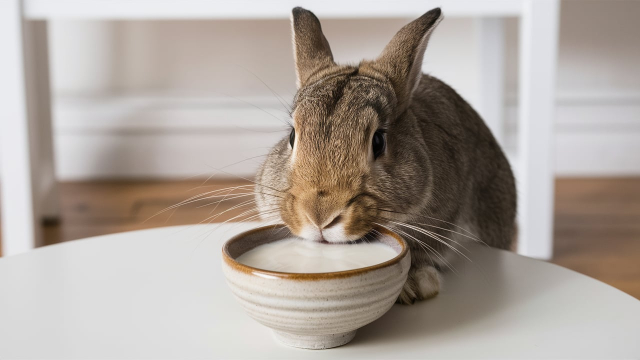
How do rabbits eat Soy Milk?
Rabbits should not consume soy milk. Their diet should consist of hay, fresh vegetables, and a small number of pellets. These foods provide the necessary nutrients and fibre to keep them healthy.
What happens if rabbits eat too much Soy Milk?
If a rabbit consumes too much soy milk, they can experience digestive upset, including bloating, gas, and discomfort. The high protein and fat content can also lead to obesity and other health issues. Contact your veterinarian if your rabbit consumes soy milk and shows signs of distress.
What If My Rabbit Eats a Large Amount of Soy Milk?
If your rabbit eats a large amount of soy milk, monitor them closely for any signs of digestive upset or other health issues. Contact your veterinarian immediately for advice and follow their recommendations to ensure your rabbit’s well-being.
How Much Eat Soy Milk Can My Rabbit?
Rabbits should not consume any soy milk. Their diet should consist of hay, fresh vegetables, and a small number of pellets. These foods provide the necessary nutrients and fibre to keep them healthy.
When shouldn’t you feed Eat Soy Milk to your Rabbit?
You should never feed soy milk to your rabbit. It is not suitable for their diet and can cause a range of health issues. Stick to providing a balanced diet that meets their nutritional needs.
Can Baby Rabbits Eat Soy Milk?
Baby rabbits should not consume soy milk. Their digestive systems are even more delicate than adult rabbits, and soy milk can cause severe digestive upset and other health issues. Provide them with a diet of hay, fresh vegetables, and specially formulated pellets.
How Frequently Should Adult and Baby Rabbits Be Fed Soy Milk?
Neither adult nor baby rabbits should be fed soy milk. It is not suitable for their diet and can cause a range of health issues. Focus on providing a balanced diet that includes hay, fresh vegetables, and a small number of pellets.
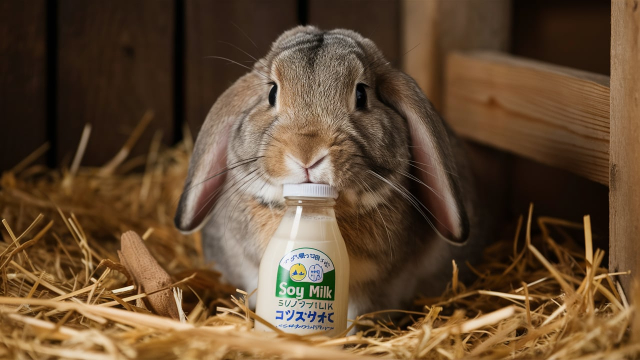
Potential Dangers in Soy Milk?
The potential dangers of soy milk for rabbits include digestive upset, obesity, liver disease, and kidney issues. The high protein and fat content, combined with the lack of necessary fibre, can lead to serious health problems in rabbits.
What if my Rabbit accidentally a lot of Eat Soy Milk?
If your rabbit accidentally consumes a large amount of soy milk, monitor them closely for signs of digestive upset or other health issues. Contact your veterinarian immediately for advice and follow their recommendations to ensure your rabbit’s well-being.
Monitoring Your Rabbit’s Health with Soy Milk?
Regularly monitor your rabbit’s health, especially if they accidentally consume soy milk. Watch for any signs of digestive upset, such as decreased appetite, lethargy, or changes in stool. Contact your veterinarian immediately if you notice any of these symptoms.
Incorporating Fresh Greens and Vegetables
To keep your rabbit healthy, incorporate fresh greens and vegetables into their diet. Leafy greens such as romaine lettuce, kale, and parsley are excellent choices. Always introduce new foods slowly to avoid upsetting your rabbit’s digestive system.
What actions should I take if my Rabbit consumes Soy Milk?
If your rabbit consumes soy milk, monitor them closely for any signs of digestive upset or other health issues. Contact your veterinarian immediately for advice and follow their recommendations to ensure your rabbit’s well-being.
Creating a Balanced Diet With Soy Milk
A balanced diet for rabbits does not include soy milk. Focus on providing hay, fresh vegetables, and a small number of pellets. These foods provide the necessary nutrients and fibre to keep your rabbit healthy and happy.
My Rabbit Eat a Whole Soy Milk?
If your rabbit consumes a significant amount of soy milk, monitor them closely for signs of digestive upset or other health issues. Contact your veterinarian immediately for advice and follow their recommendations to ensure your rabbit’s well-being.
Can Rabbits Eat Wild Soy Milk?
Wild rabbits do not consume soy milk. Their diet consists of grasses, herbs, and other vegetation they find in their natural habitat. These foods are high in fibre and low in protein and fat, which is exactly what their digestive systems are designed to handle. Soy milk is not a natural part of their diet and should not be introduced.

What Else Can I Feed My Rabbit Soy Milk?
Rabbits should not consume soy milk. Instead, focus on providing hay, fresh vegetables, and a small number of pellets. These foods provide the necessary nutrients and fibre to keep your rabbit healthy and happy.
How to Create a Rabbit-Friendly Garden?
Creating a rabbit-friendly garden involves planting a variety of safe vegetables and herbs. Consider including plants like parsley, basil, mint, and cilantro. Ensure that the garden is free from any toxic plants and that it provides plenty of safe, fresh food for your rabbit.
Soy Milk Feeding Guidelines and Amounts?
There are no feeding guidelines for soy milk for rabbits because it is not suitable for their diet. Focus on providing a balanced diet that includes plenty of hay, fresh vegetables, and a small number of pellets to ensure your rabbit’s health.
Rabbit Treats Made at Home With Soy Milk?
Avoid using soy milk in any homemade rabbit treats. Instead, use rabbit-safe ingredients such as hay, fresh vegetables, and a small number of pellets. There are many recipes available that can help you create healthy, homemade treats for your rabbit.
Conclusion
Consequently, rabbits should not be fed soy milk or any other type of milk for that matter. They have very sensitive digestive systems which need high-fibre diets with fewer fats and protein, which soya milk does not offer. Instead, rabbits should be fed hay, fresh vegetables and a limited amount of pellets to maintain a healthy and happy rabbit. Remember always that rabbits have certain dietary requirements that must be met and it is not wise to introduce foods that may not be good for their health. If you make sure to stick to the guidelines outlined above, then your pet rabbit will live a long healthy life.
FAQs
1. Can rabbits drink soy milk?
No, soy milk is not suitable for rabbits. It lacks the necessary fibre and contains too much protein and fat.
2. What should rabbits eat?
Rabbits should primarily eat hay, fresh vegetables, and a small number of specially formulated pellets.
3. Why is soy milk harmful to rabbits?
Soy milk can cause digestive issues, and obesity, and disrupt a rabbit’s delicate digestive balance.
4. Are there any safe alternatives to soy milk for rabbits?
Yes, provides fresh water and a variety of leafy greens such as romaine lettuce, kale, and parsley.
5. What should I do if my rabbit accidentally consumes soy milk?
Monitor your rabbit closely for any signs of digestive upset and contact your veterinarian immediately.
6. Can wild rabbits eat soy milk?
No, wild rabbits do not consume soy milk. Their natural diet consists of grasses and herbs.
7. Are soy milk seeds and leaves safe for rabbits?
No, soybean plants, including their seeds and leaves, are not suitable for rabbits and can be harmful.
8. How can I ensure a balanced diet for my rabbit?
Focus on providing hay, fresh vegetables, and a small number of pellets. Avoid foods that are not naturally part of their diet.

